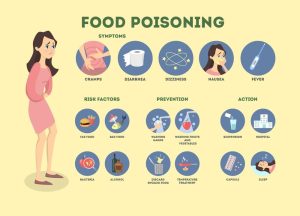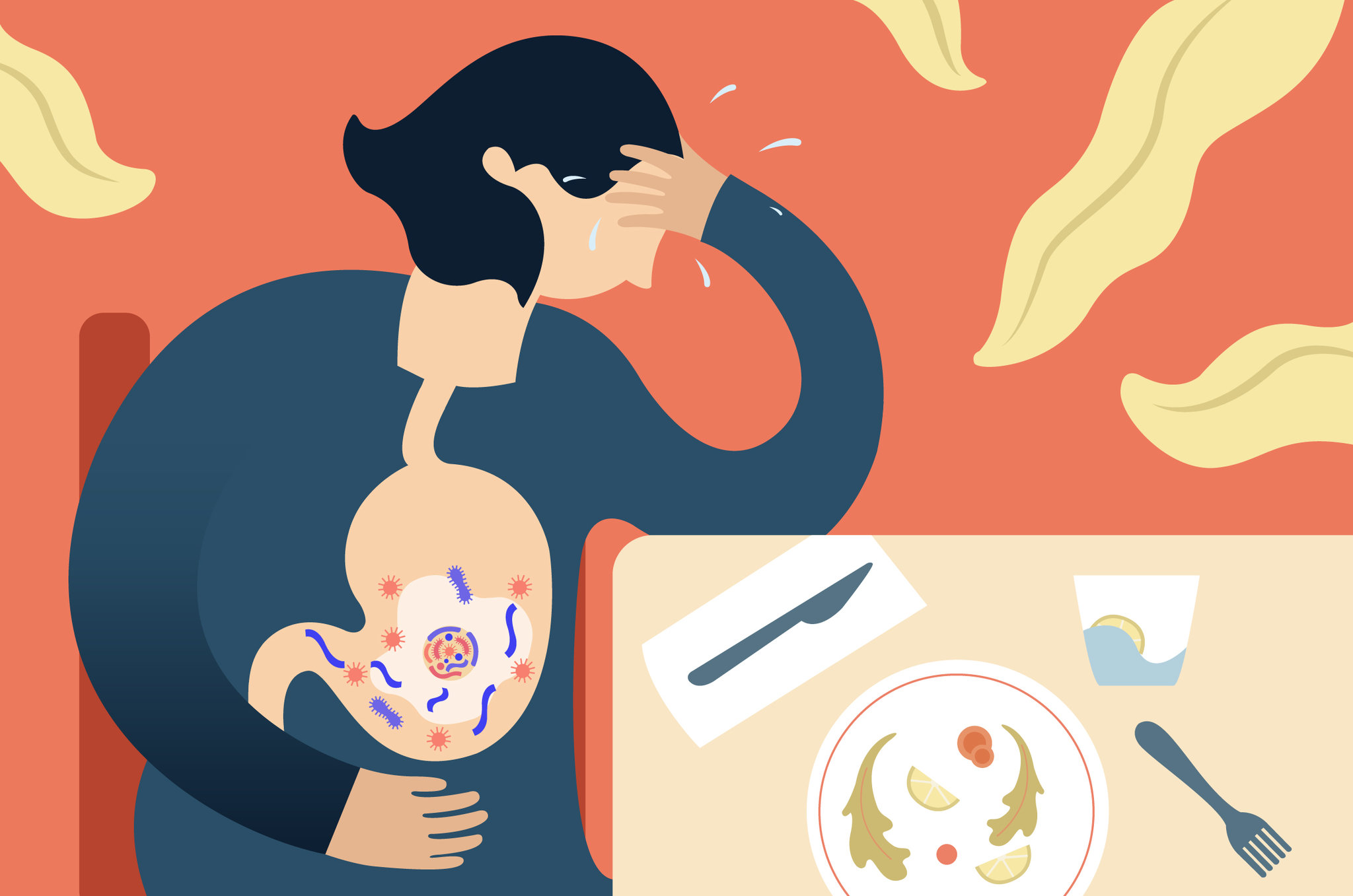Introduction
In the hustle and bustle of our daily lives, it’s not uncommon for us to encounter moments when our bodies revolt against the food we consume. Whether it’s due to contamination, improper handling, or simply a dish not agreeing with our system, falling ill from food is an unfortunate reality many face. When food turns foul, it’s essential to know the steps to take to ensure a swift recovery and prevent further complications. This comprehensive guide outlines the necessary actions to take when you find yourself under the weather due to food-related issues. Explore more About (Eye Surgery)
Understanding Food Poisoning
What Causes Food Poisoning?
Food poisoning occurs when you consume food contaminated with harmful bacteria, viruses, parasites, or toxins. Common culprits include undercooked meats, raw seafood, unpasteurized dairy products, and improperly washed fruits and vegetables. Additionally, food left at unsafe temperatures or cross-contaminated during preparation can also harbor pathogens that lead to foodborne illnesses.
Recognizing the Symptoms
Symptoms of food poisoning can vary depending on the contaminant and individual factors. However, common signs include nausea, vomiting, diarrhea, abdominal pain, fever, and weakness. These symptoms typically manifest within hours or days after consuming contaminated food and can range from mild discomfort to severe illness.

Immediate Actions
Stay Hydrated
One of the most crucial steps in managing food poisoning is to stay hydrated. Vomiting and diarrhea can quickly lead to dehydration, exacerbating symptoms and prolonging recovery time. Sip on clear fluids such as water, broth, electrolyte drinks, or herbal teas to replenish lost fluids and electrolytes.
Rest and Relaxation
Listen to your body and prioritize rest and relaxation. Avoid strenuous activities and give your digestive system time to recover. Lie down in a comfortable position and focus on deep breathing to alleviate discomfort and promote healing.
Monitor Symptoms
Keep track of your symptoms and their severity. If symptoms persist or worsen over time, seek medical attention promptly. Certain individuals, such as pregnant women, young children, the elderly, and those with weakened immune systems, may be at higher risk of complications and require medical intervention.
Dietary Considerations
BRAT Diet
When your stomach is feeling sensitive, follow the BRAT diet – bananas, rice, applesauce, and toast. These bland, easy-to-digest foods can help soothe your stomach and provide essential nutrients without aggravating symptoms. Gradually reintroduce other foods as tolerated, starting with bland options and avoiding spicy, fatty, or overly processed foods.
Hygienic Practices
Prevent further contamination by practicing proper hygiene during food preparation and handling. Wash your hands thoroughly with soap and water before and after handling food, especially raw meats, poultry, seafood, and eggs. Clean and sanitize cooking surfaces, utensils, and cutting boards to prevent cross-contamination. Cook foods to their recommended internal temperatures to kill harmful bacteria and pathogens effectively.

Seeking Medical Assistance
When to See a Doctor
While most cases of food poisoning resolve on their own within a few days, certain symptoms warrant medical attention. Seek medical assistance if you experience persistent vomiting or diarrhea lasting more than 48 hours, high fever (above 101.5°F or 38.6°C), signs of dehydration, bloody stools, or severe abdominal pain. Symptoms in vulnerable populations, including infants, the elderly, pregnant women, or individuals with weakened immune systems, should also prompt a visit to the doctor.
Diagnostic Tests
Your healthcare provider may perform diagnostic tests, such as stool cultures or blood tests, to identify the causative agent of food poisoning. Based on the results, appropriate treatment measures, such as antibiotics or antiemetic medications, may be prescribed to alleviate symptoms and promote recovery.
Preventing Future Incidents
Food Safety Practices
Reduce the risk of foodborne illness by adhering to proper food safety practices. Wash hands, utensils, and surfaces frequently, especially when handling raw foods. Cook meats, poultry, and seafood to their recommended internal temperatures to kill harmful bacteria. Refrigerate perishable foods promptly and discard any leftovers that have been sitting at room temperature for more than two hours.
Education and Awareness
Stay informed about food safety guidelines and regulations to make informed decisions when purchasing, preparing, and consuming food. Educate yourself and others about the importance of proper food handling practices to prevent future incidents of foodborne illness.
Advocacy and Policy
Support initiatives aimed at improving food safety standards and regulations at the local, national, and global levels. Advocate for transparent labeling, stringent inspection protocols, and enforcement measures to safeguard public health and prevent outbreaks of foodborne diseases.
Managing Food Poisoning Symptoms
| Symptom | Self-Care Measures | Medical Attention Required |
|---|---|---|
| Nausea, vomiting | Stay hydrated, rest, monitor symptoms | Persistent vomiting, signs of dehydration, high fever |
| Diarrhea | Hydration, BRAT diet, rest | Persistent diarrhea, bloody stools, severe abdominal pain |
| Abdominal pain | Rest, BRAT diet, monitor symptoms | Severe or worsening pain |
| Fever | Rest, hydration, monitor temperature | High fever (>101.5°F or 38.6°C), signs of infection or dehydration |
| Weakness | Rest, hydration, dietary adjustments | Persistent weakness, signs of dehydration or other complications |
Conclusion
When food turns foul and leaves you feeling unwell, swift action is essential to promote recovery and prevent further complications. By understanding the causes and symptoms of food poisoning and following the recommended steps outlined in this guide, you can effectively manage symptoms, seek appropriate medical care when necessary, and implement preventive measures to reduce the risk of future incidents. Remember to prioritize hydration, rest, and hygiene, and consult a healthcare professional if symptoms persist or worsen. Together, we can work towards a safer and healthier food environment for all.




